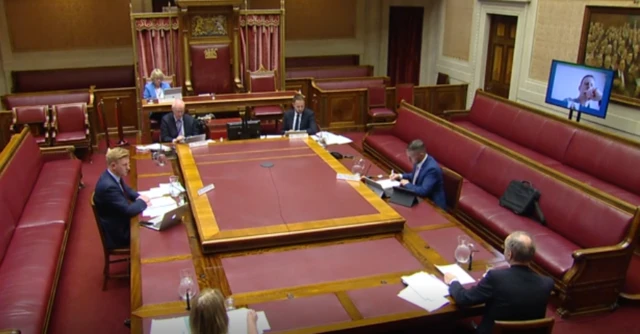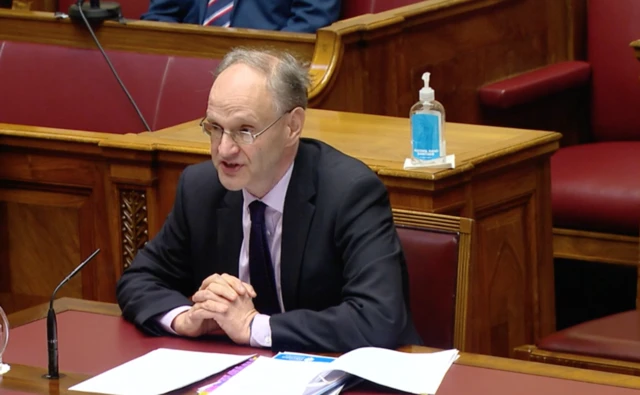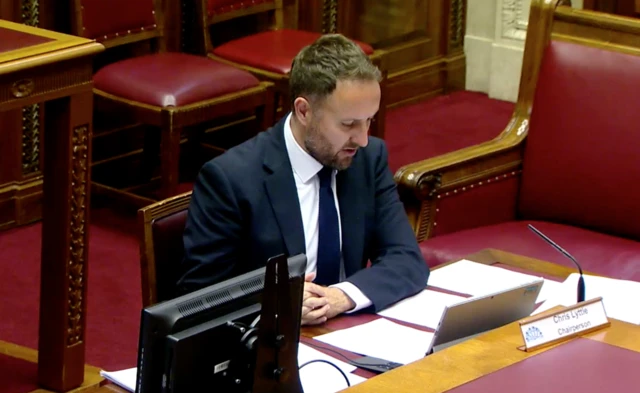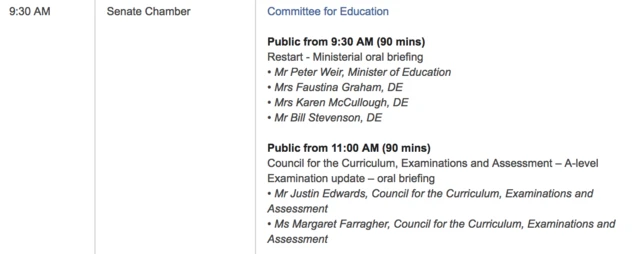'No-one has been downgraded'published at 10:57 BST 14 August 2020
Committee chair Chris Lyttle has the opening question. He asks the minister if he would like to apologise to students who have been upset by their downgraded results.
"I understand the disappointment people have," the minister says.
Mr Weir says it's important to understand that "no-one has been downgraded" and that there has been "a difference between where teachers have assessed what they feel the pupils should be getting and what the actual results are".
He says that has been the same for a number of years.
The minister says that clearly within the modelling there will be instances where it has not produced the right result.
"That is why we need an open, robust appeals service" to look at those cases on an individual level, Mr Weir says.
 Image source, NI Assembly
Image source, NI AssemblyChris Lyttle reminds the minister of concerns voiced by committee members as far back as 3 June regarding the statistical model to be used in awarding grades.
He says members have been inundated by principals and pupils who are "shocked, confused and distressed".
Mr Lyttle puts it to the minister that he and CCEA have failed to explain in a clear and transparent manner the way in which the model has operated and that the model has failed many pupils.
He calls on Mr Weir to act to ensure pupils receive "whatever grade is highest of their AS-level grade, their teacher-assessed grade or their CCEA-awarded grade"
The minister accepts that "if, in the public sphere, the information is not clear enough and hasn't been clear enough and in part because of the complexities of that information" then "maybe we could have done more in terms of explaining".
He says that previous experience shows that "teachers will tend to look more optimistically in terms of the grade results than what actually happens in practice".
Mr Weir says a robust appeals process is the correct way to deal with any problem as it "actually tailors it to the individual".
Replying to Mr Lyttle's suggestion on how to award grades, the minister says that if grades were given on the basis of teacher assessment "we would move up in a situation on the A-levels where the level of change of the pass rate from A* to C would move up from 84.8% to 95.1%"
Mr Lyttle says he believes the minister is "increasingly isolated" in his view.



